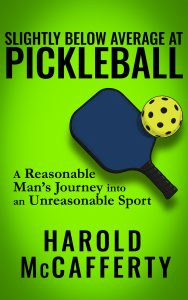Picture this: a sunny afternoon, a paddle in hand, and the satisfying *pop-pop-pop* of a pickleball rally. For some, it’s the soundtrack of a good time. For others, it’s the auditory equivalent of a jackhammer serenade. Pickleball, America’s fastest-growing sport (up 223.5% in participation over three years, according to the Sports & Fitness Industry Association), has taken neighborhoods by storm—sometimes literally. And as courts multiply faster than rabbits in spring, the noise is sparking a civil war of sorts, pitting paddle-wielding enthusiasts against earplug-hoarding residents. Today, we’re diving into this sonic saga, armed with tales from the frontlines, a sprinkle of snark, and a whole lot of sources. Buckle up—it’s going to be a wild ride.
The Sound of Trouble: Why Pickleball’s Pop is a Problem
Let’s start with the basics. Pickleball isn’t loud in the way a Metallica concert is loud—it clocks in around 60-70 decibels, about the level of a chatty dinner party. But it’s the *nature* of the noise that’s the kicker. As Professor Kausik Sarkar from George Washington University told Business Insider, it’s a high-frequency, unpredictable *pop-pop-pop* that worms its way into your brain like a catchy jingle you can’t unhear. Imagine living next to a 12-court complex—like the one proposed in Tucker, Georgia, chronicled by Decaturish—and you’ve got a recipe for neighborhood unrest. It’s not just a game; it’s a soundwave invasion.
And boy, are people mad about it. From coast to coast, and even across the border, pickleball noise has turned quiet cul-de-sacs into battlegrounds. In Goleta, California, residents like Katie Pazan told the Los Angeles Times they’re losing their minds over the relentless racket. In Arlington, Virginia, neighbors threatened legal action because the noise from Walter Reed Community Center courts was sneaking into their bedrooms (WUSA9). And in Chilliwack, British Columbia, a couple went full Hunger Games, staging a hunger strike to protest the din (Washington Post). Yes, you read that right—they’d rather starve than listen to one more *pop*. That’s commitment.
Tales from the Courts: A Pickleball Noise Tour
Let’s take a whirlwind tour of the pickleball noise apocalypse, shall we? In Tucker, Georgia, the aforementioned 12-court complex sparked a public meeting so packed it could’ve doubled as a rock concert (Decaturish). Over in Wellesley, Massachusetts, residents near Sprague Field told WCVB Boston the noise was infiltrating their homes like an uninvited guest who won’t stop talking. Meanwhile, in Punta Gorda, Florida, a homeowner association member dubbed it “torturous” at a city council meeting (FOX 4 Now). Torturous? I’ve heard worse from my neighbor’s karaoke nights, but fair enough.
Colorado’s got its own pickleball pickle. Centennial slapped a moratorium on new courts because residents couldn’t handle the sound (The Denver Post), while in Lone Tree, a lawsuit claims the courts are causing “unbearable conditions” (KDVR Fox 31 Denver). And in Edgewood, Pennsylvania, folks fretted over courts just 50 feet from their homes, fearing their peaceful evenings were toast (CBS Pittsburgh). It’s like a nationwide game of “Not in My Backyard”—except the backyard’s got a net and a paddle.
Even our friends up north aren’t immune. In Prince Edward Island, a six-court plan got axed after noise complaints, and the mayor quit in a huff (CBC). That’s right—pickleball noise took down a politician. Who needs scandals when you’ve got paddles?
The Twitterverse Weighs In
Social media’s buzzing about this too. Check out this gem from the New York Times, calling pickleball noise a “torture technique”:
It’s a torture technique. The incessant pop-pop-pop of pickleball has brought on a nationwide scourge of unneighborly clashes, calls to the police and lawsuits, with no solution in sight https://t.co/JpL4oI8gGL
— The New York Times (@nytimes) July 1, 2023
And here’s Denver’s Steve Staeger reporting on courts being yanked due to noise gripes:
“It’s a torture technique.”
The incessant pop-pop-pop of pickleball has brought on a nationwide scourge of unneighborly clashes, petitions, calls to the police and lawsuits, with no solution in sight. https://t.co/VamqN0CFKe
— The New York Times (@nytimes) July 1, 2023
The people have spoken, and they’re not happy. Or maybe they’re just jealous they didn’t join the game first.
Fixing the Pop: Solutions or Pipe Dreams?
So, what’s being done about this cacophony? Scientists are on the case, tinkering with quieter paddles and acoustic fabrics (Business Insider). USA Pickleball’s even rolled out a “quiet category” for gear, hoping to hush the haters (CNBC). Some towns are slapping up sound barriers or tweaking court hours—Fort Collins, Colorado, hired acoustical engineers to keep the peace (ourcity.fcgov.com). But here’s the rub: these fixes aren’t foolproof. High-frequency noise laughs in the face of a flimsy fence, and not every player’s keen on trading their trusty paddle for a whisper-quiet model.
Then there’s the nuclear option: ban the courts. Denver did it at Congress Park after noise complaints hit fever pitch (X). But that’s like throwing out the baby with the bathwater—or the paddle with the pickleball. Surely there’s a middle ground where players can swing and neighbors can sleep?
The Unexpected Twist: Money and Lawsuits
Here’s where it gets juicy: pickleball noise isn’t just a quality-of-life issue—it’s a wallet-drainer. Developers eyeing pickleball as the next big investment are hitting a wall of lawsuits and rising insurance costs, as noted in a University of Miami Law Review piece (lawreview.law.miami.edu). In Falmouth, Massachusetts, residents sued over the racket, temporarily shutting courts down (Cape Cod Times). Who knew a sport with “pickle” in the name could stir up such serious cash and courtroom drama? It’s like finding out your quirky uncle’s secretly a mob boss.
Conclusion: A Pop Without a Punchline
So where does this leave us? On one side, you’ve got pickleballers, gleefully smacking their way to fitness and glory. On the other, neighbors clutching their sanity (and maybe a noise-canceling headset). The *pop-pop-pop* has sparked hunger strikes, lawsuits, and mayoral resignations—proof that even a silly-sounding sport can stir up serious strife. Solutions are bubbling up, from quieter gear to soundproof fences, but they’re more like Band-Aids than cures. Me? I’m not picking a team. Maybe the players deserve their courts, and maybe the residents deserve their quiet. Or maybe we all just need to chill out and share a pickle—sorry, a *pickleball*—in peace. For now, the noise debate rages on, and I’ll be over here, popcorn in hand, watching the chaos unfold.
Sources
- Decaturish: Why a 12-Court Pickleball Complex Doesn’t Work for Everyone
- Los Angeles Times: Pickleball noise is pitting neighbor against neighbor
- Washington Post: B.C. couple goes on hunger strike to protest pickleball noise
- WCVB Boston: Neighbors of Wellesley pickleball courts upset with sport’s noise
- WUSA9: Pickleball sparks controversy in Arlington
- FOX 4 Now: City council discusses pickleball noise complaints
- The Denver Post: Pickleball is booming in Colorado. One city isn’t so sure it likes the sound.
- KDVR Fox 31 Denver: Lawsuit: Lone Tree pickleball courts causing ‘unbearable conditions’
- CBS Pittsburgh: Edgewood residents worried about noise from pickleball courts
- CBC: Latest twist in pickleball controversy leaves P.E.I. town without new courts — and mayor
- Cape Cod Times: Falmouth residents seek relief from the noise created by pickleball
- Business Insider: The noise from pickleball courts is driving everyone crazy
- CNBC: Pickleball noise remedies in the works
- University of Miami Law Review: Pickleball Popularity: Investment Opportunity or Noisy Nuisance?


